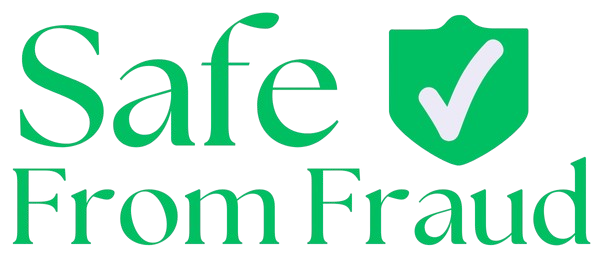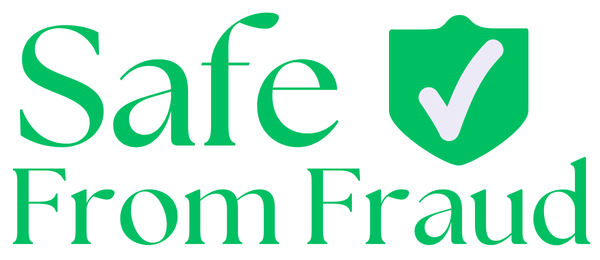[atlasvoice]
Social media has become an integral part of modern life, but for many, it has turned into more than just a tool for staying connected. Social media addiction is a real issue, affecting millions of people around the world. From constantly checking notifications to mindless scrolling, excessive use of platforms like Instagram, TikTok, and Facebook can negatively impact mental health, relationships, and productivity.
In this post, we’ll explore the causes of social media addiction, its impact, and practical treatment options to regain control over your time and well-being.
What is Social Media Addiction?
Social media addiction is characterized by an uncontrollable urge to engage with social platforms to the extent that it disrupts daily life. It shares similarities with other forms of addiction, where users become dependent on the psychological rewards (such as likes, shares, and comments) and feel distressed without access to their social accounts.
Causes of Social Media Addiction
Social media addiction doesn’t happen overnight. It is usually a combination of factors that cause people to overuse these platforms.
1. Dopamine and Instant Gratification
Social media platforms are designed to be addictive. Each “like,” comment, or share you receive activates the brain’s reward system by releasing dopamine, the feel-good chemical. This instant gratification makes users return to the app repeatedly, seeking more of that rewarding feeling.
2. Fear of Missing Out (FOMO)
FOMO is a significant driver of social media addiction. Users feel the need to stay connected and updated with the latest trends, news, and social happenings. Missing out on a viral post or important update can lead to anxiety, pushing users to constantly check their social media feeds.
3. Social Validation
Many people use social media as a tool for social validation. The number of likes, comments, or followers becomes a measure of self-worth. This need for external approval can create a dependency on social media platforms.
4. Escapism
For some, social media provides an escape from real-life challenges such as stress, anxiety, or boredom. By constantly immersing themselves in online interactions, users temporarily avoid addressing deeper issues in their lives.
5. Algorithm-Driven Engagement
Social media platforms use sophisticated algorithms to keep users engaged. Features like infinite scrolling, autoplay videos, and personalized content recommendations encourage people to spend more time online than they intend to, fueling addiction.
Signs and Symptoms of Social Media Addiction
Recognizing social media addiction can be challenging because of how integrated social media is into everyday life. However, there are a few signs that can indicate a problem:
- Spending excessive time on social media, often at the expense of other activities.
- Feeling anxious or restless when unable to check social media.
- Prioritizing social media over real-world relationships.
- Losing track of time while browsing.
- Using social media as a primary way to boost mood or cope with negative emotions.
Impact of Social Media Addiction
Social media addiction doesn’t just waste time; it can have serious consequences on mental health, relationships, and overall well-being.
1. Mental Health Issues
Excessive social media use has been linked to higher levels of anxiety, depression, and stress. The constant comparison to others’ seemingly perfect lives can lower self-esteem and fuel feelings of inadequacy.
2. Decline in Productivity
Time spent mindlessly scrolling through social media can take away from productive activities. Students may find it difficult to focus on their studies, while employees may see a drop in work performance.
3. Strained Relationships
Relying too much on virtual connections can weaken real-life relationships. Many people report feeling more isolated, despite being “connected” with hundreds of friends online. In extreme cases, relationships with family or partners can become strained due to social media overuse.
Read more: Bombay High Court Appoints Nodal Officer to Combat Scammers
Effective Treatment for Social Media Addiction
If you or someone you know is struggling with social media addiction, it’s essential to know that help is available. Here are some effective strategies to overcome it:
1. Set Clear Boundaries
Start by establishing limits on how much time you spend on social media. Use tools like screen time trackers to monitor usage, or designate certain hours of the day for social media-free activities.
2. Digital Detox
Taking a break from social media, even if just for a day, can help reset your relationship with these platforms. A digital detox can help break the habit of mindlessly checking your accounts and give you time to reconnect with real-world activities.
3. Replace with Healthy Alternatives
Instead of using social media as a default activity, find healthier ways to spend your time. Engage in physical exercise, take up a new hobby, or spend quality time with loved ones.
4. Mindfulness and Self-Awareness
Be aware of why you’re turning to social media. If you’re using it to avoid difficult emotions, practice mindfulness and address these emotions directly instead of escaping into your phone. Meditation and journaling are helpful practices that can support emotional regulation.
5. Seek Professional Help
In severe cases, you may need to seek support from a therapist. Cognitive Behavioral Therapy (CBT) is a commonly recommended treatment that helps individuals recognize and change negative patterns of thought and behavior associated with addiction.
6. Leverage Technology to Help
There are apps designed to help you reduce screen time and break free from addiction. Apps like Forest and Freedom can help block access to social media or reward you for staying offline.
Causes and Treatment for Social Media Addiction
| Causes of Social Media Addiction | Treatment Options |
| Dopamine rewards from likes and comments | Set limits on daily usage |
| Fear of missing out (FOMO) | Try a digital detox for a day or week |
| Social validation and self-worth issues | Engage in offline hobbies |
| Escapism from stress or boredom | Practice mindfulness and meditation |
| Algorithm-driven engagement | Use apps that block social media or limit time |
FAQs
Social media addiction is often driven by dopamine rewards, fear of missing out, and the need for social validation. Platforms are designed to keep users engaged with features like infinite scrolling and personalized content.
Common signs include spending too much time on social media, feeling anxious when you can’t check your phone, and using social media as a coping mechanism for negative emotions.
A digital detox involves taking a break from social media to reset your habits. It can help reduce dependency and improve your focus on offline activities.
Yes, social media addiction can be treated through a combination of self-regulation, mindfulness, and professional help such as cognitive-behavioral therapy. Setting boundaries and using apps that limit screen time can also be effective.
Excessive use of social media has been linked to mental health issues like anxiety and depression. The constant comparison to others and seeking of validation can lower self-esteem and increase feelings of inadequacy.
Conclusion
Social media addiction is a growing issue in today’s digital age, but it is not insurmountable. By understanding the causes and taking proactive steps toward treatment, individuals can regain control over their time, mental health, and relationships. With the right approach—whether it’s through setting boundaries, practicing mindfulness, or seeking professional help—breaking free from social media addiction is achievable.
Take charge of your time, reconnect with the real world, and restore balance in your life.


